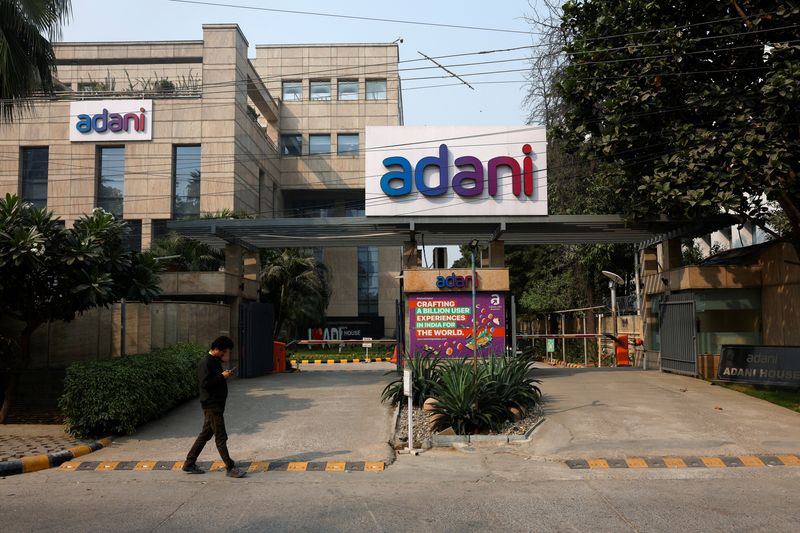Exclusive-Bangladesh wants to renegotiate Adani power deal unless court cancels
2024.12.01 11:30
By Krishna N. Das
DHAKA (Reuters) – Bangladesh wants to sharply lower prices under a power purchase deal with India’s embattled Adani Group unless it is cancelled by a court, which has called for an investigation into the 25-year deal, its de facto energy minister told Reuters on Sunday.
Adani Group founder Gautam Adani is already facing allegations by U.S. authorities that he was part of a $265 million bribery scheme in India, charges he has denied, even as one Indian state reviews a power deal with the group and France’s TotalEnergies (EPA:) pauses its investments.
In Bangladesh, based on an appeal by a lawyer demanding the power deal’s potential cancellation, the High Court last week ordered a committee of experts to examine the contract under which Adani supplies power from a $2 billion coal-fired plant in eastern India. The investigation is expected to be concluded by February, when the court is due to make its order.
The deal was signed in 2017 by Adani and a government entity under Prime Minister Sheikh Hasina, who was ousted this year amid a popular uprising and accusations of widespread corruption. Supply from the 1,600 megawatt plant, which uses expensive imported coal, started last year and meets about a tenth of Bangladesh’s consumption.
“Renegotiate in case of anomalies in the contract. Cancel only in case of irregularities such as corruption and bribery,” Muhammad Fouzul Kabir Khan, Bangladesh’s power and energy adviser, said in an interview in his office.
“Both based on the findings of the court-ordered investigations.”
He said some issues, such as Bangladesh not benefiting from some Indian tax exemptions to the power plant, have already been flagged to Adani and could partly form the basis of a deal renegotiation.
Adani did not immediately respond to a request for comment on the weekend. Adani Power (NS:) Ltd said in its latest annual report that the plant in India’s Jharkhand state would provide Bangladesh uninterrupted, reliable and affordable electricity and “significantly reduce the average cost” for the end consumer.
Khan said the U.S. corruption allegations against Adani themselves may not have any bearing on the Bangladeshi deal.
A separate committee formed by Bangladesh’s interim government is already probing the Adani deal and six other power contracts with the aim to ensure the investigations “will be acceptable in international negotiations and arbitration”, said a government statement.
At 14.02 taka a unit, Adani charged the highest rate for Indian-generated power to Bangladesh in the 2022/23 fiscal year, compared with an average price of 8.77 taka ($0.0737), according to the state-run Bangladesh Power Development Board.
Adani’s rate fell to 12 taka a unit in 2023/24, still 27% higher than the rate of India’s other private producers and as much as 63% more than Indian state-owned plants, Reuters has reported.
The retail price in Bangladesh is 8.95 taka per unit, which results in an annual power subsidy bill of 320 billion taka for the exchequer, Khan said.
“Because the prices are high, the government has to subsidise,” Khan said. “We would like power prices, not only from Adani, to come down below the average retail prices.”
Bangladesh, however, will keep paying for the power it is importing from Adani, he said. The company had recently halved its supply because of a delay in payment.
Khan said Bangladesh has enough domestic capacity to meet its needs, though some plants are currently idle or generating below capacity because of a shortage of gas or other reasons.

“When Adani cut their supply to half, nothing happened,” he said. “We will not allow any power producer to blackmail us.”
($1 = 119.0000 taka)








